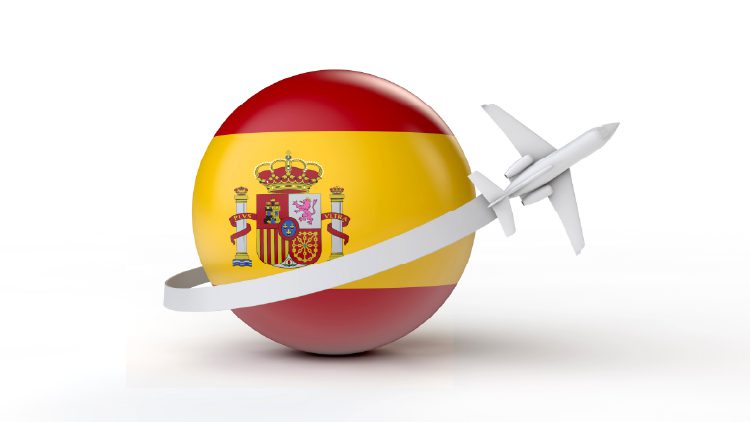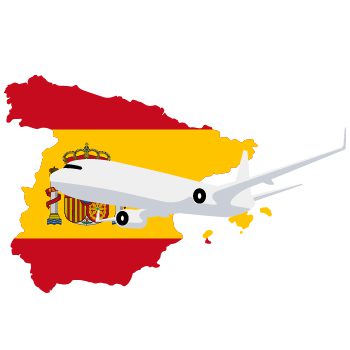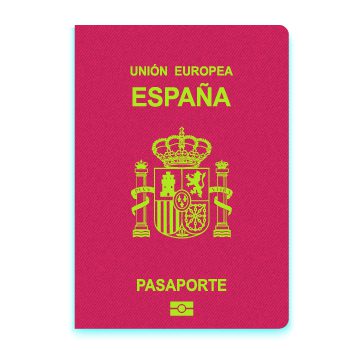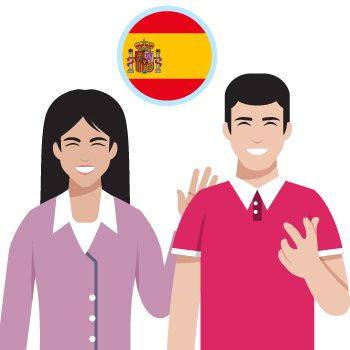
From application to arrival: Simple Steps to Immigrate to Spain
Researching and planning your move to Spain
Researching and planning your move to Spain is an important first step towards a successful immigration process. Before making any commitments, take the time to thoroughly study and understand the requirements and options available. Consider factors such as the type of visa you may need, whether you are eligible for Spanish citizenship, or if you can apply for a residency permit. This will depend on your current citizenship, whether you are from a European or non-EU country, and your intentions for living in Spain.
Additionally, familiarize yourself with the immigration laws and policies of Spain. This will ensure you are well informed and can prepare to comply with the legal requirements. It’s also important to consider practical aspects such as the cost of living, healthcare system, and employment opportunities in Spain. Researching different regions and cities in Spain can help you decide where to establish your new home.
Furthermore, connecting with the expat community in Spain can provide valuable insights and advice. Online forums, social media groups, and networking events can help you connect with other foreign nationals who have gone through the immigration process or are currently living in Spain. They can provide firsthand experiences, tips, and recommendations to make your move smoother.
Planning and conducting thorough research will empower you to make informed decisions and ensure a successful immigration process to Spain. Take the time to gather all the necessary information and consult with professionals, such as immigration lawyers or relocation experts, to assist you along the way.


Applying for a visa
Once you have researched and planned your move to Spain, the next step is applying for a visa. The type of visa you need will depend on your intentions for living in Spain. For example, if you are a Spanish citizen or a citizen of an EU country, you have the right to live and work in Spain without needing a visa. However, if you are a non-EU citizen, you must apply for a permit to legally reside in the country.
Various types of visas are available, such as a student visa, a non-lucrative visa, or a work visa. Each visa has its own requirements and application process. It’s important to carefully review the conditions and gather all the necessary documents before submitting your application. This may include proof of financial stability, health insurance coverage, or a clean criminal record.
To apply for a visa, you will typically need to visit the Spanish embassy or consulate in your country of residence. You may be required to make an appointment and provide biometric data, such as fingerprints. The processing time for visas can vary, so applying well before your intended move to Spain is advisable.
Once your visa is approved, you will receive a Spanish residence permit or a long-term visa. This will grant you legal residency in Spain for a specified period. It’s important to adhere to the conditions of your visa, such as not exceeding the allowed stay in the country and complying with any work or study restrictions.
Applying for a visa can be a complex process, but you can navigate it successfully with the right guidance and preparation. Consulting with an immigration lawyer or expert can provide valuable assistance and ensure your application is complete and accurate. Understanding the visa requirements and following the steps will help you on your path to becoming a legal resident in Spain.
Visa Options for European Stay
European countries are a popular destination for individuals seeking new opportunities or a change of scenery. For British citizens, navigating the visa requirements post-Brexit has become essential, especially for those considering long-term stays. Options such as the non-lucrative visa, which requires a valid passport and private health insurance, offer a pathway for British nationals to reside in countries like Spain. Additionally, the golden visa scheme provides an avenue for investment-based residency in various European nations. Meanwhile, digital nomads may explore options like the digital nomad visa, granting temporary residence permits for remote work. Tourist visas remain accessible for shorter stays, but for extended periods, obtaining a residence permit or long-stay visa is often necessary.
Dreaming of the Spanish sun and vibrant cities like Barcelona or Madrid? As a non-EU national, understanding Spanish visas is key. We can guide you through various visa types, including the coveted Golden Visa (investor visa) with its path to permanent residency and even Spanish citizenship. Long-stay visas cater to remote workers, while family reunification visas allow you to bring dependent children. Requirements include proof of employment (for work visas) or investment funds, a valid passport, private medical insurance, and sometimes a Spanish employment contract. This paves the way for a foreigner identity card and legal residence in Spain. Our expertise simplifies the process, ensuring you meet all the criteria for the visa that unlocks your Spanish dream, be it starting a business, working remotely, or simply enjoying the exceptional quality of life Spain offers.

Gathering necessary documents
Gathering necessary documents is a crucial step in the immigration process to Spain. Before you can apply for a visa or residency permit, you must ensure that you have all the required paperwork. This includes documents such as your passport, birth certificate, marriage certificate (if applicable), and proof of financial stability. Depending on the type of visa you are applying for, you may also need to provide additional documents, such as proof of employment or acceptance into a Spanish university.
It is important to carefully review the requirements for each document and ensure that they are up-to-date and valid. If any documents need to be translated into Spanish, make sure to do so by a certified translator. Remember that the process of gathering necessary documents may take time, so it is advisable to start this process well before your planned move to Spain.
Once you have gathered all the required documents, make copies and keep the originals safe. Having digital copies stored on a secure cloud storage platform is also a good idea. Preparing and organizing all your necessary documents will make the application process smoother and more efficient.
Gathering the necessary documents is a critical step toward obtaining your visa or residency permit and achieving your goal of moving to Spain. Double-check the requirements, gather all the required paperwork, and keep them secure throughout the immigration process.

Registering with the Spanish authorities
After arriving in Spain, the next step in the immigration process is registering with the Spanish authorities. This is necessary for all foreigners who plan to stay in the country for more than three months. Registering allows you to obtain your NIE (Número de Identificación de Extranjero), a unique identification number for foreigners in Spain.
To register, you must visit the local immigration office or police station in your Spanish city of residence. Bring all the necessary documents, including your passport, visa or residency permit, proof of address, and any other required documentation. The process usually involves filling out a form and providing your personal information.
Once registered, you will receive your NIE, essential for various activities in Spain, such as opening a bank account, buying property, or applying for a job. It also serves as proof of your legal status in the country.
If you plan to stay in Spain for an extended period, consider applying for permanent residency. With this status, you can live and work in Spain without any time restrictions. The requirements for permanent residence include residing in Spain for five uninterrupted years and demonstrating financial stability.
Registering with the Spanish authorities is vital in establishing yourself as a legal resident in Spain. Following the necessary procedures and obtaining your NIE, you can enjoy your new life in this beautiful country.
Read more about finding a certified Spanish translator.
Finding accommodation
Finding suitable accommodation is an essential step in immigrating to Spain. Whether you prefer renting or buying, plenty of options are available to meet your needs. The first thing to consider is your budget and the location where you want to live. Spain offers many affordable housing options, from apartments and houses to villas and townhouses. You can start your search online on real estate websites or connect with local real estate agents who can assist you in finding the right place.
When looking for accommodation, consider proximity to amenities, public transportation, and your workplace or school. Remember that some areas may have higher rental prices or a higher cost of living than others. It’s also important to familiarize yourself with the local rental market and regulations, especially if you plan to rent. Understanding your rights as a tenant and the terms of your rental agreement is crucial.
If you plan to stay in Spain long-term, you may also consider applying for a long-term residency permit, making finding accommodation easier. This permit allows you to rent or buy a property without any time restrictions. Remember that as a non-EU citizen, you may need to demonstrate financial stability to be eligible for a long-term residency permit.
Overall, finding suitable accommodation in Spain requires careful consideration of your budget, location preferences, and long-term plans. By doing thorough research and seeking professional advice if needed, you can find a place to call home during your immigration journey.
Setting up basic utilities
Setting up basic utilities in Spain is important to ensure a comfortable and functional living environment. Once you have found your accommodation, it’s time to set up essential services such as electricity, water, and internet.
To get started, you must contact your area’s utility providers. Doing this as soon as possible is recommended to avoid any delays or inconvenience. Research different providers and compare their rates and services to find the best options for your needs.
When setting up your utilities, remember that some providers may require a Spanish bank account, so opening one beforehand is advisable. Additionally, you may need to provide documentation such as your NIE, proof of address, and a rental contract.
Once you have chosen your providers, contact them to arrange for the installation or connection of the services. Be prepared to schedule appointments and provide any necessary information. It’s also important to inquire about billing and payment methods to ensure a smooth process.
Setting up basic utilities during your first 180-day Period in Spain is crucial for a comfortable and hassle-free transition. By being proactive and organized, you can quickly establish essential services and enjoy your new life in Spain.
Finding work or setting up a business
Finding work, setting up a business, or exploring passive income opportunities in Spain is important in establishing yourself in your new home. The job market in Spain offers various opportunities, and several resources are available to help you find employment. Start by updating your resume to highlight your skills and experience. Online job portals and recruitment agencies are a great place to start your job search, as they often have listings for various industries and positions.
Networking is also crucial in Spain, so attend industry events and join professional associations to meet people in your field. If you’re interested in passive income, consider exploring opportunities like investing in rental properties or other ventures that generate income with minimal active involvement. Additionally, if you want to start your own business, research the requirements and regulations for establishing a business in Spain. The Spanish government offers support and resources for entrepreneurs, so take advantage of these resources to navigate the process successfully.
Whether seeking employment, pursuing passive income, or entrepreneurship, perseverance and proactive networking will increase your chances of finding work or setting up a successful business in Spain.
Learning Spanish
Learning Spanish is an essential step towards successfully immigrating to Spain. While many Spaniards speak English, having a basic knowledge of the Spanish language will greatly enhance your experience and interactions with the local community. Not only will it make daily tasks like grocery shopping or navigating public transportation easier, but it will also allow you to connect on a deeper level with the culture and people of Spain.
There are many ways to learn Spanish, depending on your preferred learning style and availability. Consider enrolling in a language course in person or online to receive formal instruction and practice with a qualified teacher. Language exchange programs, where you can meet native Spanish speakers learning your native language, are also a great way to improve your language skills while making new friends.
Additionally, immersing yourself in Spanish by watching movies or TV shows, listening to Spanish music, and practicing conversation with locals will help you progress quickly. Don’t be afraid to make mistakes; embrace every opportunity to practice your language skills.
Learning Spanish is a practical necessity and a way to fully integrate into the vibrant Spanish culture. By trying to learn the language, you’ll open yourself up to new experiences, make lifelong connections, and truly feel at home in your new country. So grab a Spanish phrasebook or start downloading language learning apps, and begin your journey to fluency in Spanish!
Exploring Spanish Culture and Lifestyle
Exploring Spanish culture and lifestyle is an exciting part of your journey to immigrate to Spain. Spain is known for its rich cultural heritage, diverse traditions, and vibrant way of life. Take the time to immerse yourself in the local customs, cuisine, and festivities to truly experience what this beautiful country has to offer.
One of the best ways to explore Spanish culture is by indulging in the country’s culinary delights. From paella and tapas to churros and sangria, Spanish cuisine is a delicious reflection of the country’s history and regional diversity. Visit local markets, cafes, and restaurants to savor authentic Spanish flavors and discover new culinary favorites.
In addition to food, Spanish culture is also celebrated through music, dance, and festivals. Flamenco, a passionate and expressive dance form, is a hallmark of Spanish culture and can be experienced in various cities across the country. Don’t miss the opportunity to attend traditional festivals such as La Tomatina or Semana Santa, where you can witness age-old traditions and join in the festivities.
Navigating Healthcare and Social Services
Navigating healthcare and social services is essential for your well-being as an immigrant in Spain. Spain boasts a comprehensive healthcare system that provides universal coverage to residents, including expatriates. As a legal resident, you are entitled to access public healthcare services, including primary care, specialist consultations, and hospital treatment.
To access healthcare services in Spain, you will need to register with the Social Security system and obtain a healthcare card (Tarjeta Sanitaria Individual). This card allows you to access medical care and prescription medications at no or low cost, depending on your circumstances. Private health insurance is also available for those who prefer additional coverage or faster access to medical services.
In addition to healthcare, Spain offers a range of social services to support residents in various aspects of life. These services may include childcare, education, housing assistance, and unemployment benefits. Understanding how to access and navigate these services can help you integrate into Spanish society and enjoy a fulfilling life in your new home.
Embracing Diversity and Inclusion
Embracing diversity and inclusion is an integral part of living in Spain as an immigrant. Spain is a melting pot of cultures, with people from diverse backgrounds coexisting harmoniously. Embrace this diversity by learning about different cultures, traditions, and perspectives represented within Spanish society.
Participating in cultural exchange programs, multicultural events, and community initiatives can help foster understanding and appreciation for diversity. By engaging with people from various backgrounds, you can broaden your horizons, challenge stereotypes, and build meaningful connections.
In addition to embracing diversity, Spain is committed to promoting inclusion and equality for all residents. Legal protections against discrimination based on race, gender, sexual orientation, and other factors ensure that everyone has the opportunity to thrive and contribute to society. Get involved in advocacy efforts and support organizations that promote inclusivity and social justice to help create a more equitable and welcoming environment for all.
Exploring Spain’s Natural Beauty
Exploring Spain’s natural beauty is an enchanting aspect of your immigration journey. From stunning coastlines to majestic mountains, Spain offers a diverse landscape that beckons outdoor enthusiasts and nature lovers alike. Discover picturesque beaches along the Costa del Sol or Costa Brava, where crystal-clear waters and golden sands provide the perfect backdrop for relaxation and recreation.
Venture inland to explore Spain’s breathtaking national parks, such as Sierra Nevada or Picos de Europa, where rugged terrain and pristine wilderness await exploration. Hike through lush forests, climb towering peaks, or marvel at cascading waterfalls amidst awe-inspiring natural scenery.
Beyond its terrestrial wonders, Spain’s islands, including the Balearic and Canary Islands, offer unique ecosystems and outdoor adventures. Dive into turquoise waters teeming with marine life, hike volcanic landscapes, or simply soak up the sun on secluded beaches.
Whether you’re an avid hiker, beach bum, or wildlife enthusiast, Spain’s natural beauty invites you to embark on unforgettable adventures and create lasting memories amidst some of the most spectacular landscapes in Europe.
Understanding Spanish Legal and Tax Obligations
Navigating the legal and tax obligations in Spain is a crucial step for any immigrant aiming to integrate seamlessly into the country’s system. Upon becoming a resident, you must familiarize yourself with Spanish tax laws, which include income tax, property tax, and other local taxes that might apply. Spain operates on a progressive tax rate system, and residents are required to report their worldwide income. To avoid any legal complications, it is advisable to consult a tax professional who can provide detailed guidance on your tax responsibilities and help with annual filings. Understanding your tax obligations ensures compliance and helps you plan your finances more effectively.
In addition to taxes, being aware of legal requirements such as registering your residence, understanding employment laws, and adhering to local regulations is essential. For example, if you plan to drive in Spain, you might need to exchange your foreign driver’s license for a Spanish one. Understanding the legal framework, including tenant rights if you are renting or property laws if you are buying, can help prevent legal issues. Staying informed about your rights and responsibilities as a resident will contribute to a smoother transition and a more stable life in Spain.
FREQUENTLY ASKED QUESTIONS
How do I start the immigration process to Spain?
Begin by determining the type of visa or residence permit that suits your purpose (work, study, family reunion, etc.). Gather the necessary documentation, including proof of funds, health insurance, and a valid passport.
What are the different types of visas for Spain?
Spain offers various visas, including tourist, student, work, family reunification, and investor visas. Choose the one that aligns with your intentions.
Do I need to apply for a visa as an EU citizen?
No, citizens of EU/EEA countries do not need a visa to live and work in Spain. However, you should register with the local authorities after your arrival.
How can I apply for a Spanish work visa?
Secure a job offer from a Spanish employer. Your employer should initiate the work visa application process on your behalf.
Can I bring my family members with me when immigrating to Spain?
Yes, under certain circumstances, individuals immigrating to Spain may be eligible to bring their family members with them. Family reunification visas are available for spouses, children, parents, and other relatives of Spanish residents or citizens. The requirements for family reunification visas may vary depending on the applicant’s relationship to the sponsor and other factors, so it’s essential to consult the specific guidelines provided by Spanish immigration authorities.

